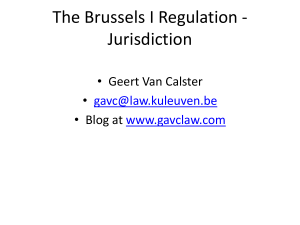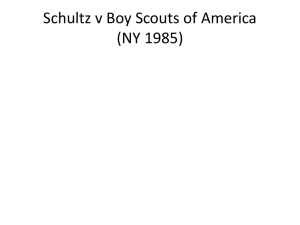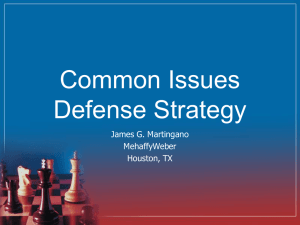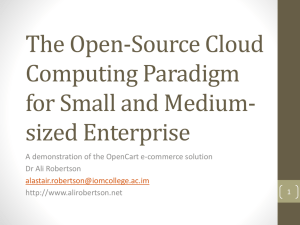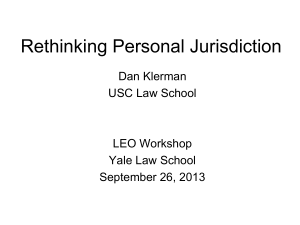Jurisdiction Over The Person (In Personam Jurisdiction)
advertisement
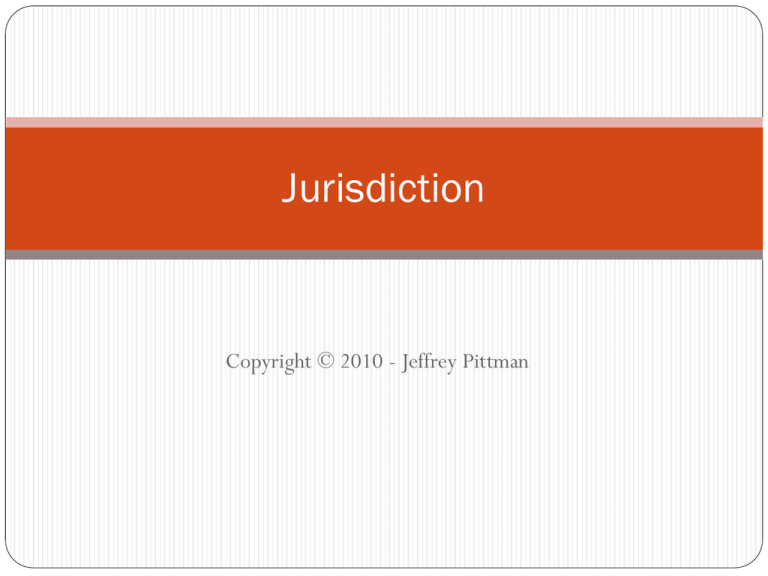
Jurisdiction Copyright © 2010 - Jeffrey Pittman Jurisdiction Jurisdiction refers to a court’s power to hear and decide a case – the power to “speak” the law Trial courts have original jurisdiction, that is, trial courts provide a location for lawsuits to begin 2 Pittman - Cyberlaw & E-Commerce Trial Courts To begin a lawsuit, a trial court must have subject matter jurisdiction, that is, jurisdiction based on the nature and subject of the lawsuit and on the amount in dispute 3 Pittman - Cyberlaw & E-Commerce Trial Courts The trial court usually must also have in personam jurisdiction—jurisdiction over the defendant (personal jurisdiction) Some cases require in rem jurisdiction over properties located within the court’s territory, instead of in personam jurisdiction 4 Pittman - Cyberlaw & E-Commerce Personal Jurisdiction Under United States law, a state court acquires personal jurisdiction over a defendant through, among others, the following methods: Legal service to a defendant while the defendant is in the forum state For businesses, a company is legally present in every state where the company engages in substantial, systematic and continuous activity in the forum state (“general jurisdiction”) 5 Pittman - Cyberlaw & E-Commerce Personal Jurisdiction (cont.) Legal service to a defendant located anywhere, where the defendant is a resident of the forum state For corporations, service is allowed, at a minimum, in the state of incorporation Use of the forum state “long-arm statute” 6 Pittman - Cyberlaw & E-Commerce Long-arm Statutes To comply with the due process clause of the Fourteenth Amendment, long-arm statutes may force an out-of-state defendant into a forum state only where The defendant has sufficient minimum contacts with the forum state, and The cause of action arises out of the contacts, and Jurisdiction will not offend traditional notions of fair play and substantial justice 7 Pittman - Cyberlaw & E-Commerce Bases for Court Jurisdiction See Exhibit 2.5, page 56 in the textbook 8 Pittman - Cyberlaw & E-Commerce Minimum Contacts Specific jurisdiction – Purposeful Availment Did defendant, through contacts in the forum state, purposely avail itself of benefits from the forum state, and Does the litigation arise out of these contacts Alternately, did the defendant purposely aim the effects of its behavior at the forum state 9 Pittman - Cyberlaw & E-Commerce Minimum Contacts For purposeful availment and the Internet, see Exhibit 2.6, page 58 in the textbook 10 Pittman - Cyberlaw & E-Commerce Subject Matter Jurisdiction State Trial Courts Empowered to hear all disputes except exclusive federal questions Federal Trial Courts (District Courts) Empowered to hear only: Federal question lawsuits, or Diversity of citizenship lawsuits 11 Pittman - Cyberlaw & E-Commerce Federal Court System Supreme Court of the United States Appeals from highest state courts United States Court of Appeals (12 regional circuits) United States Court of Appeals Federal Circuit District Courts (96 Districts) Bankruptcy Court 12 Pittman - Cyberlaw & E-Commerce Tax Court The Appellate Process Appellate courts do not “try” cases but generally review only law and procedure - not fact decisions from the trial court The losing party at trial is guaranteed one appeal; after the first appeal, further review is a matter of court discretion 13 Pittman - Cyberlaw & E-Commerce






